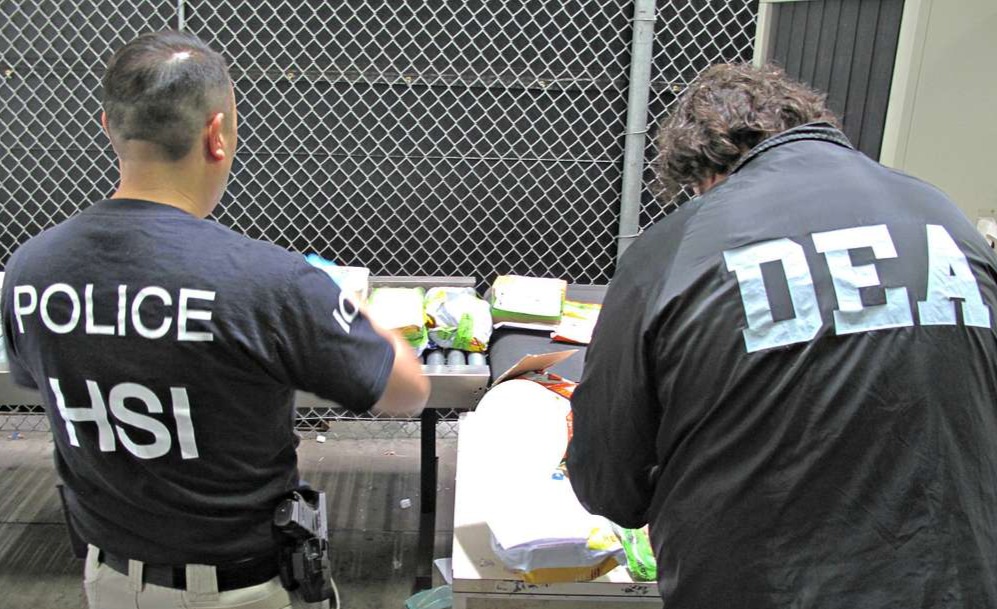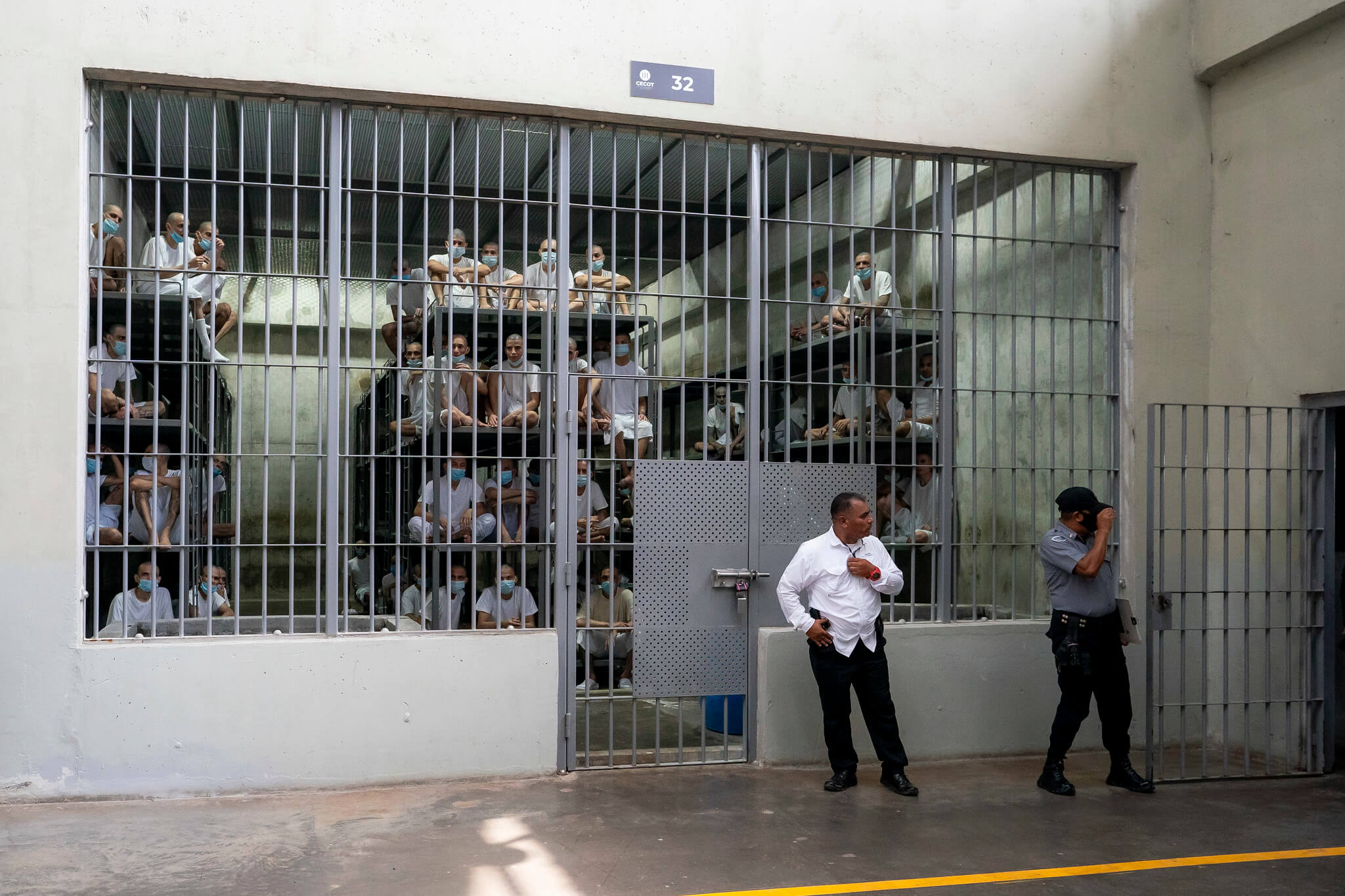Today's Headlines and Commentary
If recent news reports and inflamed Twitter activity are to be believed, the long-awaited Senate report on the CIA’s enhanced interrogation program is "expected to be released Tuesday." Already, former President George W. Bush’s team is pushing back on the report’s findings.
If recent news reports and inflamed Twitter activity are to be believed, the long-awaited Senate report on the CIA’s enhanced interrogation program is "expected to be released Tuesday." Already, former President George W. Bush’s team is pushing back on the report’s findings. The New York Times reports that former intelligence officials have privately pressured Bush administration officials, assuring them that they were not misled about the nature, extent, or results of the program, in an attempt to secure allies after the report’s release. On Sunday, President Bush told CNN’s Candy Crowley, “these are patriots and whatever the report says, if it diminishes their contributions to our country, it is way off base.”
In the Daily Beast, Shane Harris and Tim Mak write that the CIA is likely to offer a muted response to the report, refusing to stand up for the program or to disavow it.
On Saturday, Secretary of State John Kerry asked the Senate Intelligence Committee Chair, Senator Dianne Feinstein (D-CA) to “consider” the timing of the report’s release and its potential impact on the safety of Americans being held hostage around the world. State Department Spokeswoman Marie Harf told reporters that the Secretary had “directed all of our posts overseas to review their security posture in light of...a release of this report.” The Guardian has more on Secretary Kerry’s comments.
When the report is released, Lawfare will host extensive coverage of the contents and debate. Stay tuned here.
Saddening news from Yemen today, as Reuters reports that thirteen people were killed, including U.S. hostage Luke Somers, in a failed rescue attempt. A second western hostage, a South African teacher named Pierre Korkie, was also killed. As U.S. special forces battled al Qaeda militants, another kidnapper in a different building shot the two hostages. The Wall Street Journal has more details of the operation, including how and why it may have failed. After the raid, U.S. officials at the Pentagon have suggested that there will not be a policy review for the use of special forces to rescue hostages.
In a visit to Turkey this week, EU’s foreign policy chief, Federica Mogherini, will pressure Ankara to “participate fully” in the fight against ISIS in Syria. The BBC reports that Mogherini will also urge Turkey to stem the stream of foreign terrorist fighters across its borders.
In yet another sign of the continuing fallout of the Syrian Civil War, news outlets reported yesterday that Israeli warplanes bombed targets in territory held by the Syrian government near Damascus. Israel’s government has not confirmed the reports. Unlike the US-led raids, these airstrikes appear to have focused on Hezbollah targets in an attempt to deter shipments of Iranian missiles and other weaponry to the Shiite militant group. The Washington Post has more on the strikes, which supposedly killed two Hezbollah fighters. The Daily Beast reports that the strikes are a warning to Russia, Assad and Tehran regarding the proliferation of advanced weaponry in the unstable region. Relatedly, Haaretz writes that new reports by UN observers assert that there is “regular contact” between IDF officers and armed Syrian opposition figures along the Israeli-Syrian border.
The UN refugee agency (UNHCR) is urging rich countries to play their part and take in at least 5% of all Syrian refugees by the end of 2015. Over 3.2 million people have fled the country’s devastating civil war, with most of the outflux going into neighboring countries that are ill-equipped to help them. Reuters has more.
At NPR, Peter Kenyon writes that despite Iranian leaders’ statements to the contrary, Tehran’s economic trend lines are all pointing in the “wrong direction.”
The New York Times brings us news that a Washington Post reporter, Jason Rezaian, who has been in an Iranian jail since July, has finally been charged by Iranian authorities. According to the reporter’s family, he has not been told what charges he faces. The Times has more on Mr. Rezaian’s imprisonment.
Meanwhile, Foreign Policy reports that the United States has evidence that Iran is violating U.N. nuclear sanctions in pursuit of new components for the Arak heavy water reactor. However, it is unclear whether the allegations are against the Iranian government or against private actors in Iranian society - actors who may be hardliners attempting the scuttle a deal.
Gulf News reports that approximately 70 Ethiopian nationals have died in another migrant boat disaster on the Mediterranean. The migrants all drowned after their boat reportedly sank near the Red Sea’s entrance off the coast of Yemen.
According to the Associated Press, the United States will keep 1,000 more U.S. personnel in Afghanistan than previously planned in order to fill a NATO troop gap. The announcement comes as rumors swirl that Afghanistan’s President Ashraf Ghani may request more assistance than previously expected.
A U.S. drone strike in Pakistan has killed four, including a suspected senior al Qaeda militant who was wanted in connection with a plot to bomb the New York City subway system. The fighter, Omar Farooq, was close with Osama bin Laden and Ayman al-Zawahiri and was a key figure in running al Qaeda’s operations and finances in Afghanistan and Pakistan. Reuters and the Long War Journal have more on the strike, including some controversy over exactly who was targeted.
Elsewhere, Reuters reports that the United States has handed over three prisoners, including a senior Taliban militant, to Pakistan. In the Guardian, Jon Boone notes how the Pakistani Taliban has encountered a surge of counter-terror operations following the election of Ashraf Ghani and a dramatic improvement in relations between Islamabad, Kabul, and Washington. On Sunday, a U.S. drone strike in Afghanistan killed nine members of the Pakistani Taliban, according to the police chief of Kunar province.
One of the most well-known liberal TV channels in Russia has been forced to move out of its studios in Moscow for the second time in two months. TV Dozhd (Rain TV) is prominent for its political coverage, which often sharply disagrees with the state media’s line. The Russian government has been accused of pressuring these departures and muzzling independent press. The BBC reports that another private news channel, TV2, faces closure by the end of this year.
German Chancellor Angela Merkel condemned Russia’s “interference” in Eastern Europe yesterday, according to the BBC. She made the comments in an interview with German newspaper Die Welt am Sonntag, and went on to accuse the Kremlin of “creating problems” for Georgia, Moldova and Ukraine.
The Washington Post reports that Japan’s recession may be worse than previously thought. New government statistics, which were released just days before early parliamentary elections, revised an unexpected 1.6% drop in GDP during the third quarter down to an even-worse 1.9% decline. Most economists had reportedly been expecting an improvement.
Looking for a rundown on how Chinese media are covering the official arrest of former security czar and Standing Committee member Zhou Yongkang? The BBC delivers.
The BBC also reports that a court in China has prescribed the death penalty for six people that were convicted of attacking a market in Xinjiang earlier this year that killed 39. The attackers drove cars into shoppers and threw bombs in the busy commercial area.
The Washington Post reports that North Korea has denied hacking Sony Pictures’ computer systems, but welcomed the cyberattack all the same. Speculation has settled on Pyongyang for the breach, in part because Sony Pictures is responsible for an upcoming movie, “The Interview,” which revolves around a plot to assassinate the country’s highest leader, Kim Jong Un.
Wondering about the difference between the “dark web” and the “deep web?” Want to know what a “zero day” is or how “end-to-end encryption” is more secure than its regular counterpart? Kim Zetter’s “Hacker Lexicon” series on Wired will fill in the gaps.
This weekend, the US transferred six Guantanamo detainees to Uruguay, writes the New York Times. This batch of inmates is the largest single group to depart the prison since 2009, and the first sent to South America.
Parting Shot: The art of drone painting - yes, painting with drones is now a thing.
ICYMI: This Weekend, on Lawfare
This weekend’s Foreign Policy Essay featured Magnus Ranstorp and a look at the trends and lessons from Scandinavian foreign fighters. Wells Bennett and Benjamin Wittes took a look at Senator Menendez’s draft ISIL AUMF. Steve Vladeck overviewed the DC Circuit’s Mandamus Jurisdiction and the legitimacy or the Military Commissions. Ben Wittes shared the Lawfare Podcast, which features an interview with Natan Sachs and is chocked full of insight on Israeli politics. Ashley Deeks walked us through the legal complications of a “buffer zone” inside Syria. Email the Roundup Team noteworthy law and security-related articles to include, and follow us on Twitter and Facebook for additional commentary on these issues. Sign up to receive Lawfare in your inbox. Visit our Events Calendar to learn about upcoming national security events, and check out relevant job openings on our Job Board.
Cody Poplin is a student at Yale Law School. Prior to law school, Cody worked at the Brookings Institution and served as an editor of Lawfare. He graduated from the UNC-Chapel Hill in 2012 with degrees in Political Science & Peace, War, and Defense.
Ben Bissell is an analyst at a geopolitical risk consultancy and a Masters student at the London School of Economics. He graduated Phi Beta Kappa from the University of Virginia with majors in political science and Russian in 2013. He is a former National Security Intern at the Brookings Institution as well as a Henry Luce Scholar, where he was placed at the Population Research Institute in Shanghai, China.





